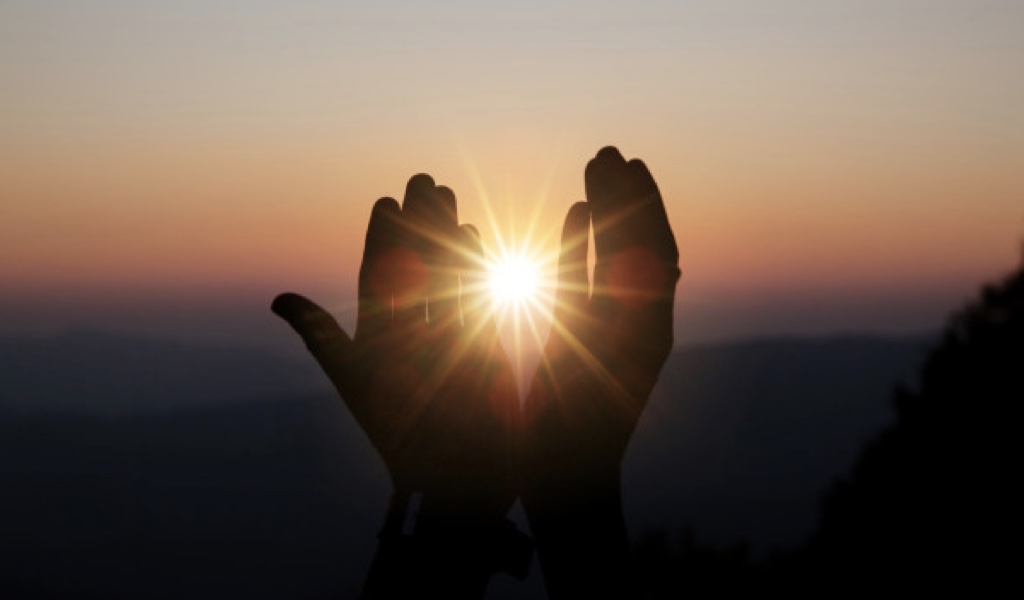(1) Keep switching till you find your heart
In these last ten nights of Ramadan, you can’t afford to sit still. So, vary your acts of worship. Set your phone on flight mode, then move from the recitation of Qur’an, to prayer, to Du’aah, to remembrance, to moments of deep contemplation, and so on. Such alternation is a key way of dispelling boredom and laziness. You will find your heart.
(2) Search desperately for Laylatul Qadr/the night of decree
The moment you feel a dip in enthusiasm, remember that a single hour of one of these last 10 nights is equivalent to 3000 days’ worth of actions. In other words, more than 8 years, and that a single minute during that night is equivalent to 50 days’ worth of actions!
However, such calculations are only to bring the meaning closer. The reality of Laylatul Qadr cannot be calculated, as Allah said that it's “greater” than 1000 months, and not “equivalent” to it. How much “greater”? Only Allah knows.
In fact, some scholars of Tafseer have mentioned that the expression of “1000 months” is not even to be understood literally, as the Arabs use it in reference to a lifetime, as opposed to an actual number. Hence, with that understanding, the Ayah translates as: “Laylatul Qadr is better than a lifetime”!
Contrary to common assumption, therefore, losing out on these 10 nights cannot be compensated for next Ramadan.
On that note, we’re receiving so many reminders of the Hadith “whoever stands Laylatul Qadr/the night of decree in prayer out of belief and anticipation of the reward, all of his previous sins will be forgiven”
But what does it mean to “stand the night of decree in prayer”? Am I required to spend the entire night in prayer? What if I have work the next day and I really can’t stay up?
Ibnu Rajab said:
“Some have narrated that ‘Abdullah Ibnu ‘Abbas said: ‘Spending the night in prayer is when one prays the ‘Isha prayer in congregation and makes the intention of praying the Fajr prayer in congregation as well.’ Malik also said in his ‘Muwatta’: ‘It was conveyed to me that Ibnul Musayyib said: ‘Whoever witnesses the night of decree – i.e. by carrying out the obligatory prayer in congregation – then such a person has taken his portion from it.’ This is what Ash-Shaafi’i said (in his old opinion): ‘Whoever prays the ‘Isha and Fajr prayers during Laylatul Qadr then such a person has taken his portion from it.’”
(Lataa’iful Ma’aarif)
Should you be able to pray more, then you are to be congratulated, for this is the spirit of the last ten nights, but should something come up, keep the above in mind, for nothing equates to the five obligatory prayers.
(3) Say “Astaghfirullah” / “I repent to Allah”
It seems to be a common theme where Islam urges us to repent upon the completion of a good deed.
– When you finish your prayer, the first thing you say is “Astaghfirullah” three times
– When you complete your Wudoo, you say “O Allah make me from the penitent ones [..]”
– Towards the end of your Hajj, we were commanded to say “Astaghfirullah” (Al-Qur’an, 2:199)
– As they pray at night, the believers were described as “asking for forgiveness” (Al-Qur’an, 51:18)
Hence there is a theme of concluding one’s good deeds with repentance, as such good deeds are definitely tarnished with showing off, laziness, lack of attentiveness, and so on. Such deficiencies are fixed with repentance.
Just as Abu Huraira said:
الغيبة تخرق الصيام والاستغفار يرقعه، فمن استطاع منكم أن يجيء بصوم مرقَّع فليفعل
“Backstabbing rips into one’s fast, but repentance patches it, and so whoever is able to meet Allah with a patched up fast, then let him do so.”
Say “Astaghfirullah”, but position your heart correctly first;
Make it repentance that fixes your gazes, influences your private conversations, purifies your finances and improves your public appearances.
Make it one that remains with you around the clock and before your very eyes, with you when your eyes finally close, and with you as they reopen for the Day of Reckoning.
Subscribe for Updates
Original content used with permission from:






